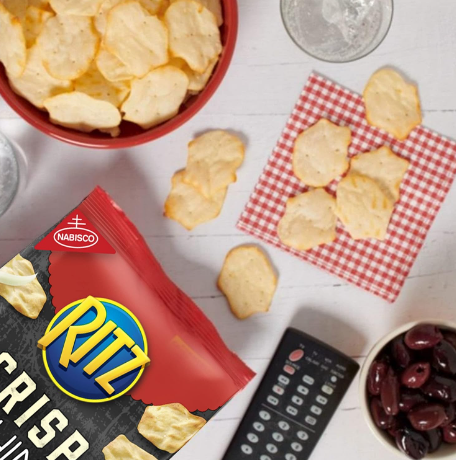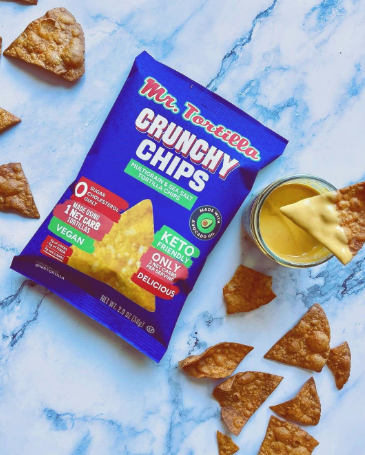14 Healthy Snack Ideas to Make Your Heart (and Belly) Happy

Indulge in the Irresistible Delight of Breton Cabaret Crisp & Buttery Crackers!
March 26, 2025
Satisfy Your Cravings with Brothers All Natural Fuji Apple Crisps – A True American Snacking Delight
March 28, 2025There are many ways to add nutrients to your healthy eating habits, and eating a wholesome meal is just one way to show you love. A well-chosen snack is an excellent choice for curbing hunger, replenishing energy, stabilizing mood, and strengthening the heart.
When it comes to promoting optimal cardiovascular function, there are several diets that are known for their ability to promote heart function. From plant-based to Mediterranean diets, these dietary lifestyles place a strong emphasis on foods that help reduce heart disease risk and provide benefits such as cardiovascular protection.
Fresh and Crunchy Snacks:
1. Apples
“You can eat high-fiber fruits like bananas or apples and add a little peanut or almond butter for heart-healthy, high-fiber, healthy fat-friendly benefits that are rich in vitamins, minerals and antioxidants,” Hultin said. In particular, apples are an excellent source of bioactive polyphenols and soluble fiber, which are linked to cardiovascular health. Need apple breakfast ideas? Try this nutritious granola recipe that also contains extra protein.

2. Celery
This water-rich, fiber-rich vegetable is a versatile, crunchy option that’s rich in phenolic compounds and prized for its powerful antioxidant properties. Not only is celery easy to eat (and digest), but it’s also easy to take with you as a snack. You can eat it raw (after a thorough wash) or grilled (who knows?). Also, consider adding some nut butter to round out this snack.
3. Persimmon peppers
Bell pepper or chili pepper both refer to the same delicious vegetable. Bell peppers, in particular, are rich in vitamin C, antioxidants, and vitamin A (β-carotene), making them an excellent choice for heart health. Just like celery, chili peppers can be eaten raw or roasted.
4. Hummus
Rich, rich, luscious and creamy, and packed with heart-protecting antioxidants, hummus is a beloved dipping sauce made from chickpeas, olive oil, and tahini.
5. Kale
Are you looking for a crispy, nutritious option to satisfy your crunchy food cravings? Kale may be the answer! In fact, one study found that regular consumption of kale significantly improved participants’ coronary risk factors (possibly due in part to its anti-inflammatory properties). This dark leafy greens is a nutritious food with endless delicious possibilities: from spicy sauces to pickled salad recipes, it’s hard to go wrong.
Salty Snacks:
6. Popcorn
Popcorn is a good source of fiber, a whole-grain food and a world-famous snack. Choosing freshly made popcorn topped with anti-inflammatory turmeric or vitamin-rich nutritional yeast is a great way to add that popcorn to your (incredibly delicious) snack.

7. Rice cakes
Rice cakes are made by heating rice grains and puffing them together into a biscuit-shaped patty. On their own, mochi aren’t the most nutritious option, but they’re versatile carriers of heart-healthy ingredients. Try topping with a few slices of avocado or a spoonful of almond butter for nourishment.
8. Nuts
Foods like nuts and seeds contain fiber, omega-3s, and antioxidants, so eating assorted dried fruits or a handful of nuts is very good for the heart. Grab a handful of pistachios, almonds, walnuts, macadamia nuts, cashews, or even a spoonful of nut butter – the options are endless for this simple snack packed with heart-healthy fats.
9. Seeds
Flax, chia seeds, sesame seeds, pumpkin, sunflowers, pomegranates, or apricots – seeds are an iconic, heart-healthy food that can add a dose of crunch to your diet.
10. Roasted chickpeas
The magic of chickpeas is that, in addition to being a fiber-rich legume, you can enjoy them in a variety of delicious, varied ways. Looking for a grab-and-go snack? Try roasted dill chickpeas for a quick recovery.

11. Roasted broad beans
Another crispy option worth trying. Eating legumes can reduce the risk of heart disease and help improve heart health. If you want a burst of flavor, try stirring them with some sea salt or smoked paprika.
12. Sardines
Rich in vitamins, fatty acids, and minerals, sardines are a convenient pescatarian snack that can replenish a rich omega-3. You can incorporate sardines into your snack plan by placing a few sardines on toast, rice cakes, or yeast biscuits for a quick bite.
13. Sweet potatoes
Sweet potatoes are a delicious and antioxidant-rich root vegetable, making them an excellent choice for nourishing the body, supporting digestion, and maintaining a feeling of fullness without causing a spike in blood sugar levels. Best of all, you can prepare them in a variety of ways – baking, mashing, or even baking into healthier fries or fries.
14. Quinoa
Quinoa, a gluten-free rock star in the Andes, is one of the few plant sources that contains all nine essential amino acids. While technically this antioxidant-rich grain is a seed, it’s easy to prepare and is available in most grocery stores worldwide.



